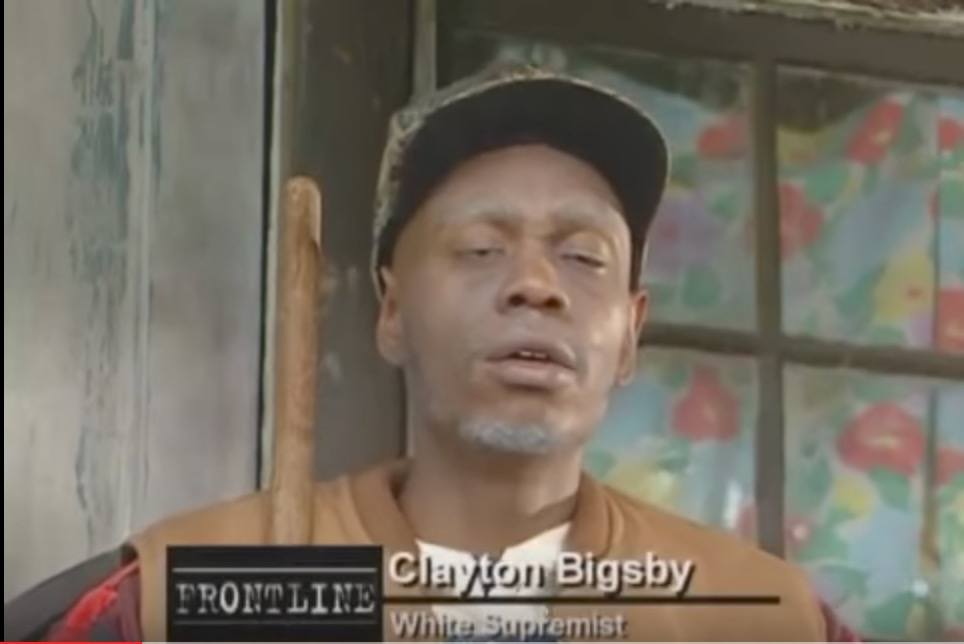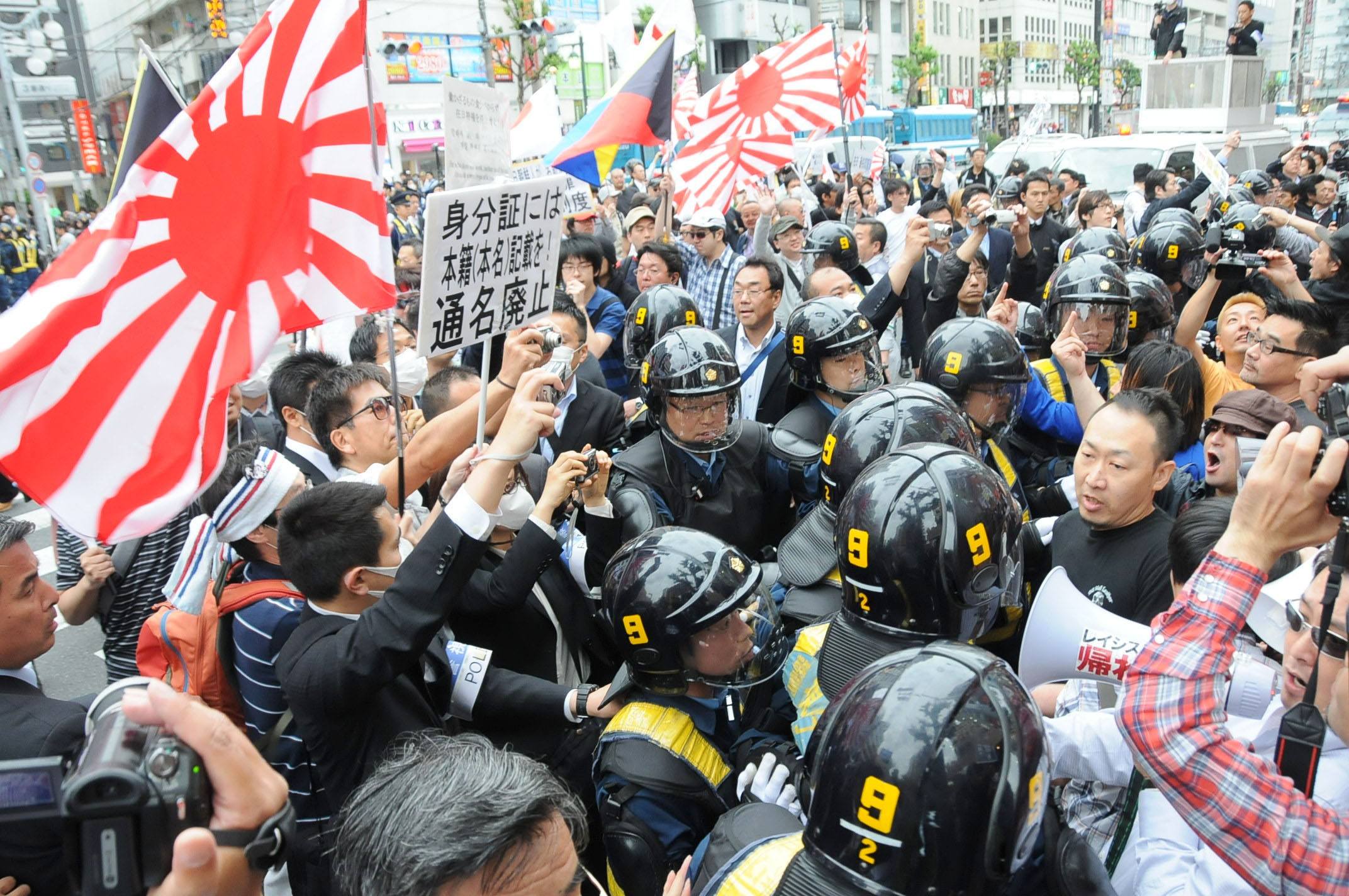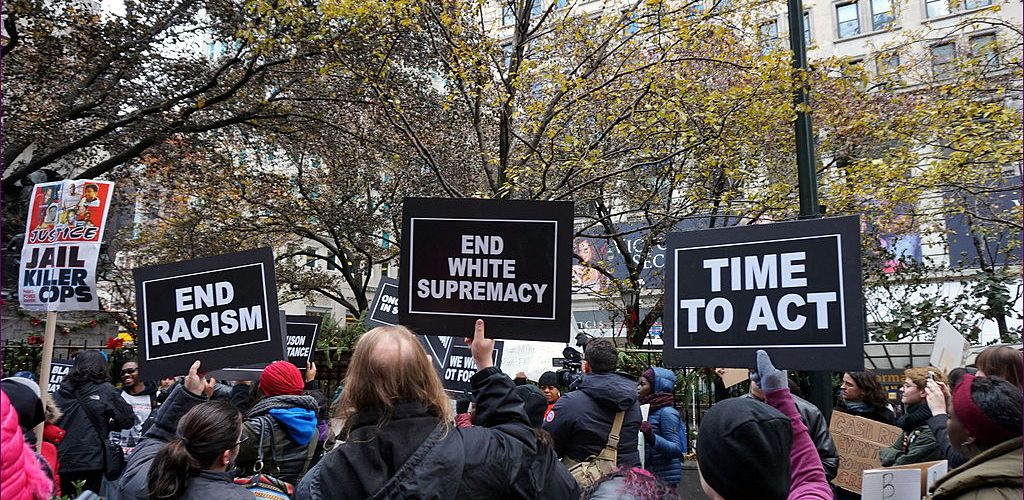“…why do those in the American media shy away from the idea that racism, bigotry, and supremacy are not exclusive to a single ethnic group?”
There is no good way to bring up the topic of supremacy and racism. It has become such a sensitive issue that many steer away from it entirely or take up the cause against it. In today’s media climate, white supremacy is one of the biggest talking points driving political and public discourse. With the meteoric rise of neo-nationalism and the alt-right movement, there are many within the American media community that have focused their attentions specifically on the growing ideology of white supremacy within these groups.
But even before the 2016 election, racial tensions had been increasing with various police shootings and anti-Obama rhetoric. American late night television stars, comedians, and journalists have all capitalized on the racial tensions and brought forward the issue, but are they missing the point? Does the issue of racism overshadow supremacy and the various forms it takes within multiple cultures?
In the past, American media have focused on the Klu Klux Klan as the go-to staple of white supremacy. But since the rise of the alternative right, originally coined by Richard Spencer and the National Policy Institute, it is now the go-to example of neo-white supremacy. In a SNL monologue, the day after Donald Trump’s inauguration, Aziz Ansari spoke out against casual racism in the form of “lower case k.k.k.” He claimed that after the election of Donald Trump “a small group of individuals” got the idea that they didn’t need to pretend to be racist anymore and that individuals are running around telling minorities “Trump won, go back to Africa…Mexico”. He claimed location wasn’t important as racists were not ‘history buffs’. This is a commonly held stereotype, that white supremacists are uneducated, poor, or southern.
In a classic rendition of a white supremacist in the Chappelle’s Show Episode Frontline – Clayton Bigsby, Dave Chappelle plays an African-American Klu Klux Klan leader and author. It premiered in 2003 on Comedy Central. In the episode, he plays the classic white supremacist stereotype, the uneducated southern white racist – it is the dominate feature in satirizing the KKK. Although, the twist in this satire is that the main character is a blind African-American that believes he is white.

The sketch itself is teeming with the standard stereotypical racist behavior expected in a rural backwater community. The we-don’t-like-your-kind attitude was on full display when Clayton Bigsby, the Frontline host, and Clayton’s friend stop for gasoline at a station in the rural community. Bigsby is confronted by a group of 5 men who slam their hands on the hood yelling, “What, you lost, boy?” and “You better get out of here ‘fore something bad happens.” In a startling response that confuses the racists, Bigsby joins in the action by yelling back, “That’s right, that’s right! Tell that n****r! Beat it, you sorry n****r!” The group was confused by Bigsby’s words and actions. Just hearing an African-American scream racial slurs towards another African American would be a shock to anyone, especially today. But, as funny and daring as the sketch may be, it has a deeper history than most know.
In an interview with Vulture, co-creator Neal Brennan revealed that the origin of the sketch comes from Chappelle’s own grandfather — a mix-raced blind African-American. Brennan explained that the day Martin Luther King was assassinated, Chappelle’s grandfather was on a bus and “a bunch of black dudes came up to him and were like, “What you doing on this bus, cracker?” and Dave’s grandfather apparently thought, “Man, this cracker is in a lot of trouble”, before he realized, Oh, I’m the cracker.”
It’s interesting to see the comparison between the two stories and the ultimate switch of the roles in the sketch. Instead of diving deeper into the possible racism demonstrated against his grandfather, Chappelle chooses to switch the roles and play on the deeply held stereotype of white racism and supremacy. Although the sketch does create an interesting avenue for discourse involving American racism and white supremacy, it brushes over the fact the sketch is based on a racial stereotype itself. It also reveals a different, real incident of hostility and bigotry that is similar to the gas station scene on the Chappelle Show.
But why do those in the American media shy away from the idea that racism, bigotry, and supremacy are not exclusive to a single ethnic group? The idea that racism and supremacist ideology only applies to European or Anglo-Americans creates the repetitive racial stereotype of southern whites as the go-to racists in the American media. This ideology is dangerous and only continues to miss the root cause of the issue, that supremacy and racism does not apply to only one ethnic group, but can been seen in multiple countries and ethnic cultures.
For example, in a recent occurrence of multicultural racism, Lily Macapinlac, a Filipina Instagram model from Sydney, Australia, came under scrutiny for racist tweets. Christian Gollayan of the New York Post reported that the 22-year-old model tweeted in one post that “If another short old Asian dude tries buying me a drink, I’m going to puke on them” and, in another post, that she is “definitely going to marry a white boy, I want a half-cast baby… My dad is cheering me on. He said ‘If he’s white then it’s okay.’ But, these tweets aren’t even that worst of the racist statements made by the Filipina model.

In another tweet, she asked if anyone “…ever dislike someone so much you hate their entire race?” in which one Twitter user, ggboiz, replied with “Indians” as his answer. The conversation between Lily and ggboiz continued and the user asked if “racism run(s) in the family?” to which Lily claimed that “it’s not racism…It’s a ‘preference’’ and that it is “basically like saying you hate licorice.” Unfortunately, that is exactly what racism is, not a preference but a conscious choice to discriminate based on race. It would be hard to read those words and find it to be anything other than a bigoted and racist statement. Do these statements make her a supremacist too?
Most can agree that her statements are racist, but does her word qualify as being in the same realm as a supremacist. It’s hard to find a difference between racist and supremacist, especially as the definitions are becoming increasingly interchangeable.
Generally, a racist is defined as a person whose belief is that one’s own racial group is superior or that another racial group is inferior. Whereas supremacy is the belief that one group of people is superior to another group, and that the superior group should maintain control over others. Under these definitions, Lily Macapinlac statements are racist in intent, but do not indicate supremacy. She did not call for the control of an ethnic group.
But some could argue that racism and supremacy are too similar to ignore. The two definitions are relatively close in relation, because racism is a symptom of supremacy. Wherever you find racism there will also be supremacist ideology that creates racial propaganda in the form of stereotypes, slurs, and ethnocentrism. Sadly, examples of supremacist ideology can be found in various cultures around the world.
In Japan, the Zaitokukai, a Post-War World II hate group that was founded in 2006, actively targets immigrants and minorities by protesting in residential areas with heavily dense minority populations. They shout threatening slogans and use signs that contain racial slurs.

The Zaitokukai claim that Zainichi Koreans are taking advantage of the welfare system and abuse the administration systems that ultimately cause problems for Japanese citizens. One of the main objectives of the Zaitokukai is to repeal the Special Act on Immigration Control that give Zainichi Koreans special permanent residence status, which the group views as giving them special legal rights.
In recent administrative action against the Zaitokukai, the Japanese government passed its first law that specifically targets hate speech against ethnic Koreans and minorities. Unfortunately, the legislation has done little to deter the hate group from protesting against ethnic Koreans in Japan.
The Zaitokukai held a rally in Nagoya calling for the end of public funding of private schools specifically meant for ethnic Koreans. During the march, members of the movement shouted: “throw Korean schools into the Sea of Japan!” among other acts of supremacist behavior. The actions taken by the Zaitokukai are not that different from the alt-right movement, neo-nationalism, or the classic white supremacist in the Klu Klux Klan. Both groups are using supremacist ideology to push out and control another ethnic group through intimidation, physical threats, and racism.
In China, there has been growing discourse against the apparent racist views towards those with African descent. Lou Jing, a half Chinese and African-American singer who appeared on the Go! Oriental Angel in 2009, an American-Idol style reality television program, was met internet backlash for her appearance. One user on KDS, a popular Shanghainese BBS discussion forum, said “Yellow people and black people mixed together is very gross…only black skin, not yellow skin, chocolate skin…Not even knowing this common knowledge, ruining a child’s life.”
Even with the blatant display of racism and discrimination, the event had largely been forgotten. But, a commercial produced by the Shanghai Leishang Cosmetics in 2016 brought the discussion of racism in China back into the public eye once again.
The commercial depicts a Chinese woman putting a laundry detergent pod into a black man’s mouth and before stuffing him into a washing machine. After the machine finishes, a Chinese man come out in his place. Outrage towards the commercial was felt across the world and went viral within a few hours.
The company later came out with a statement saying the organization had “no intention to discriminate against people of color… Ethnic discrimination is something we strongly reject and condemn.” They even asked for others in the global community to “cease sharing the video.” Although the company publicly apologized, they still believe that “the foreign media might have been too sensitive,” and went as far as stating that “Chinese people will just take the ads as a joke and still buy the products, as most of us don’t have a clear understanding of racism.” This claim appears to be false. Experiences like those of Lou Jing are not uncommon in China and go widely unreported.
In a Quora discussion board, Stalin Kawana shared his experience as an African living in China. He lists several reasons for “why Chinese people hate blacks” and they include: beauty standards and body odor, African stereotypes of being poor, lazy and ignorant people, and culture differences. He claims that there is racism in China and that “it’s prevalent in Guangzhou, the city that has the largest number of black Africans” and that the “locals’ only dream is to see all black people get kicked out of their hometown.”
These examples of multicultural racism and supremacy are terrible in their own right. Every country has their issues with discrimination against minorities and ethnic groups. It shows just how far the global community is from achieving an end to supremacy and racism. If history is any indication of what happens when extremism and supremacist ideologies are allowed flourish, like those during the Holocaust in Europe, the genocide in Rwanda, and the ethnic cleansing in Bosnia, the global community will not be able to identify the real problem of racism.
But, if the American and global media focus only on stereotypical go-to racists they will continue to miss the facts and evidence that point to a wider issue of racism and supremacy all over the world. By focusing on the usual suspect, it only allows the continued cycle of hate in other parts of the world to grow and go unreported. Once the global community recognizes that bigotry, hate speech, discrimination, racism and supremacy are not mutually exclusive to one ethnic group, the community can finally fight against it.

















